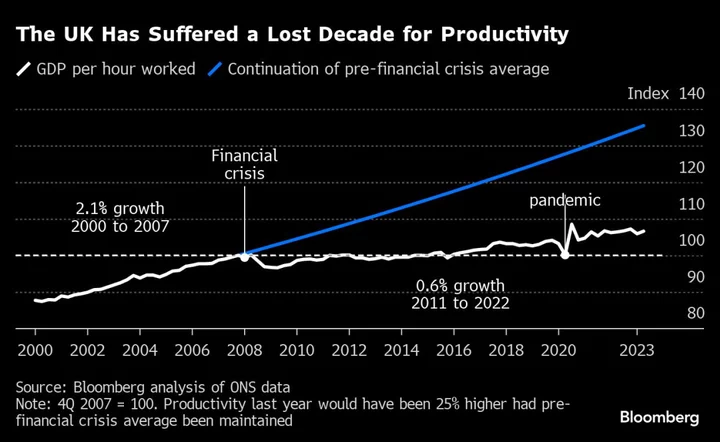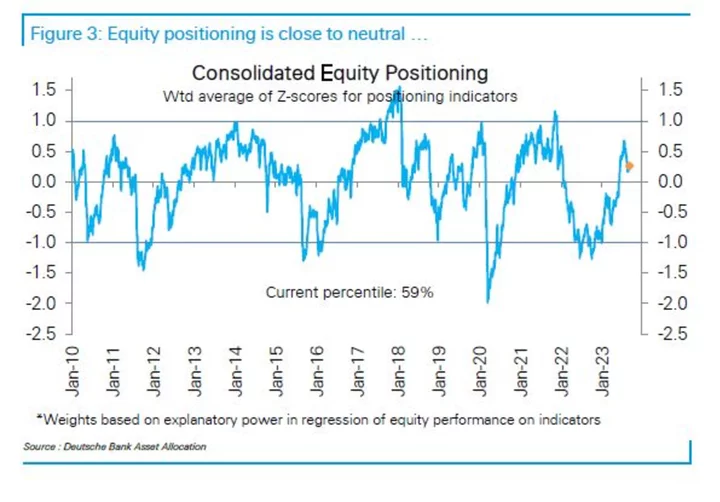A group of policymakers, economists and academics are calling on the UK government to set up an institution to tackle Britain’s productivity puzzle.
A body similar in scope and influence to the Office for Budget Responsibility, but focused on boosting output in the UK, would help the country overcome years of expected minimal growth, according to the publicly funded Productivity Institute and the Programme on Innovation and Diffusion at the London School of Economics.
A report from the two groups to be published Wednesday urges the government to establish a productivity department through statute. Like the OBR, which monitors the public finances, the new institution would be independent from government, but able to influence policy making. It would be focused on developing long-term solutions to address growth challenges.
The suggestion comes as Prime Minister Rishi Sunak looks for ways to boost the amount each worker produces, which has flatllined since the financial crisis over a decade ago. While Chancellor Jeremy Hunt announced tax cuts for UK workers in his Autumn Statement on Wednesday, along with incentives to encourage business investment, the OBR is expecting living standards to be lower by the end of this Parliamentary term for the first time in modern history.
“The political environment is, and has been for some years, too uncertain, turbulent and febrile to deliver on a long-term, focused approach to pro-productivity policies,” said Bart van Ark, managing director of The Productivity Institute and a professor of productivity studies at the University of Manchester where the institute is based.
“An independent productivity institution with influence across Whitehall and the devolved nations – and which is immune to changes in the political weather – is key.”
Over the last 15 years, Britain has failed to come close to the rates of productivity growth it was able to achieve in previous decades. Economists call it the “productivity puzzle” and successive prime ministers have pledged in vain to solve it. The malaise, which has also plagued other advanced economies, has depressed wages in the UK and restricted how fast the economy could grow without fueling inflation.
The OBR thinks the average annual rate of productivity growth will level around 1% over the next five years, but even this will leave economic growth weak. The Bank of England’s predictions are even bleaker.
Economists are divided on the underlying causes. But it is likely to be a combination of poor long-term investment by both the public and private sector, limited knowledge-sharing among firms, and a lack of cooperation between government departments.
Anna Valero, deputy director of the Programme on Innovation and Diffusion and a member of the chancellor’s economic advisory council, said the new institution needed a “long-term vision.”
“At the core it should focus on productivity and growth,” she said. “But job creation, living standards and the journey to net zero are also critical areas for this institution.”
The recommendations will come as part of a larger Productivity Agenda to be published by the two groups in Westminster on Wednesday. The Productivity Institute’s governing council includes fomer BOE rate-setter and government adviser Kate Barker, and former OBR committee member Charlie Bean. Senior members of the Programme on Innovation and Diffusion include current BOE policymaker Jonathan Haskel.









